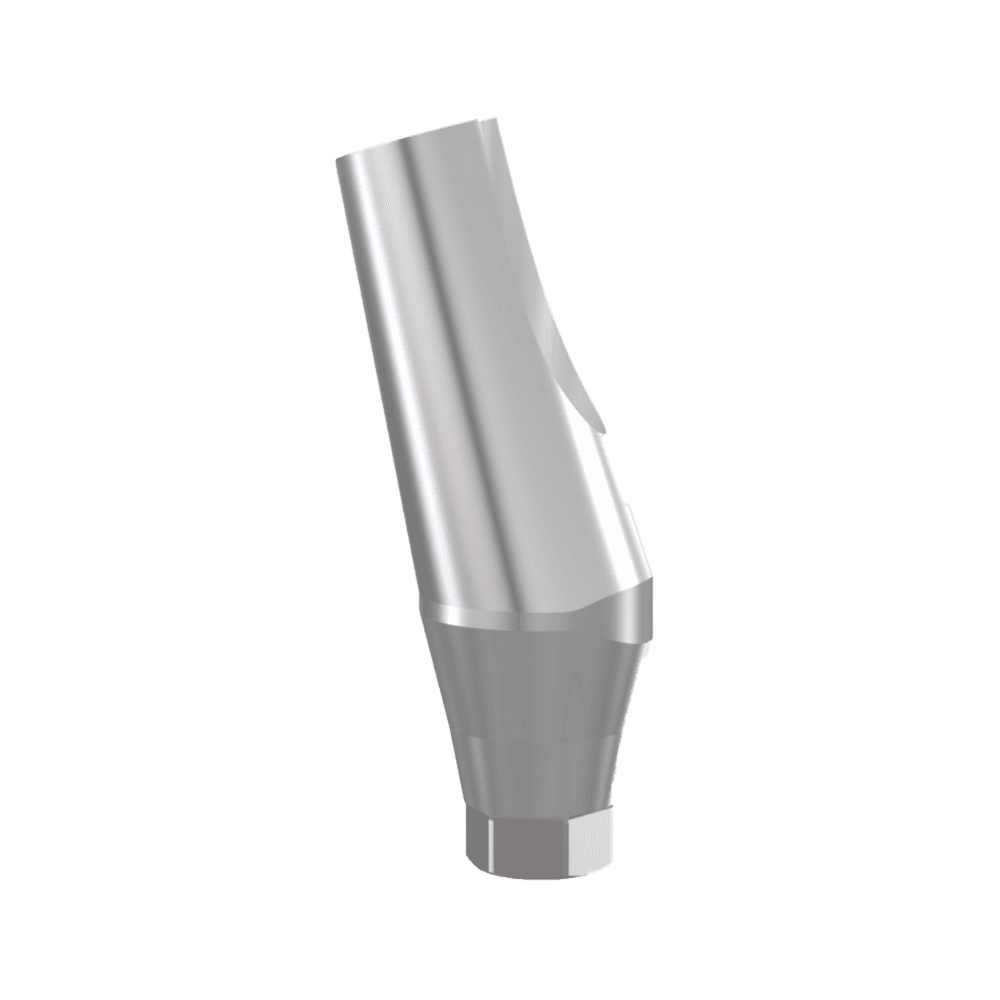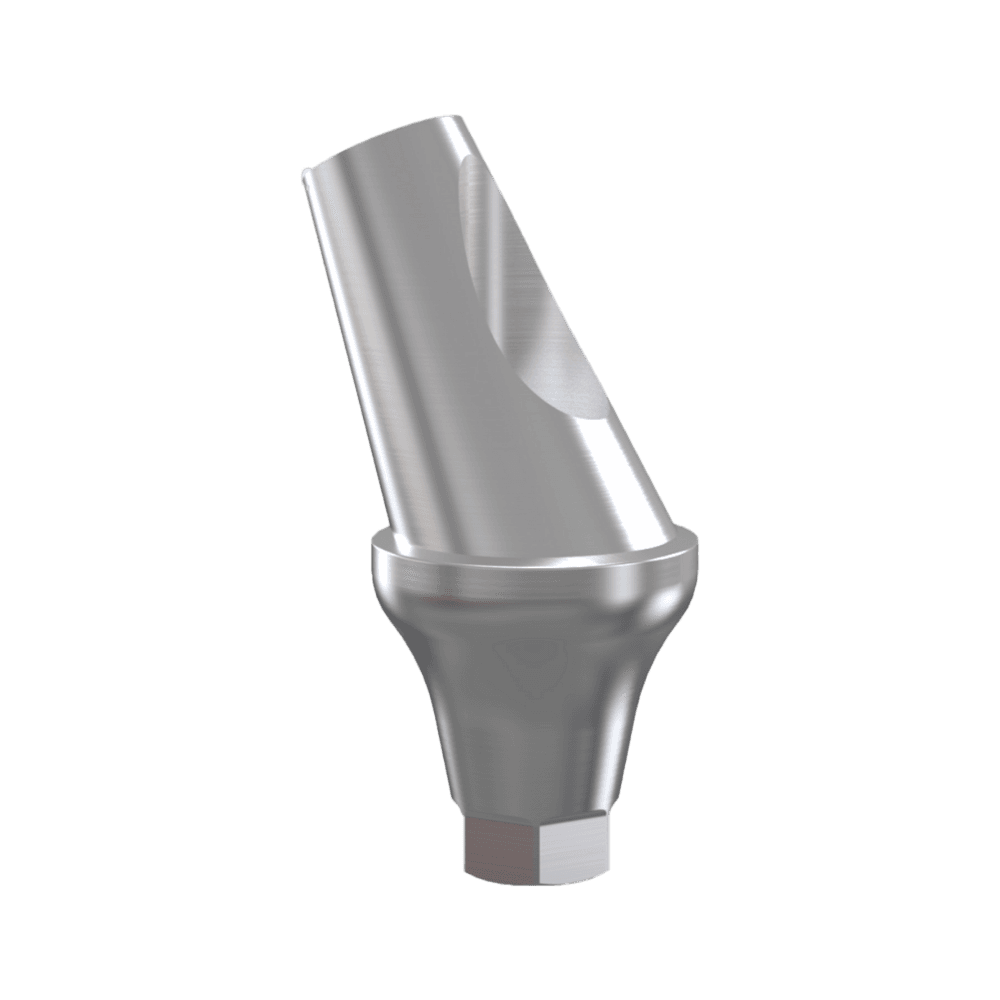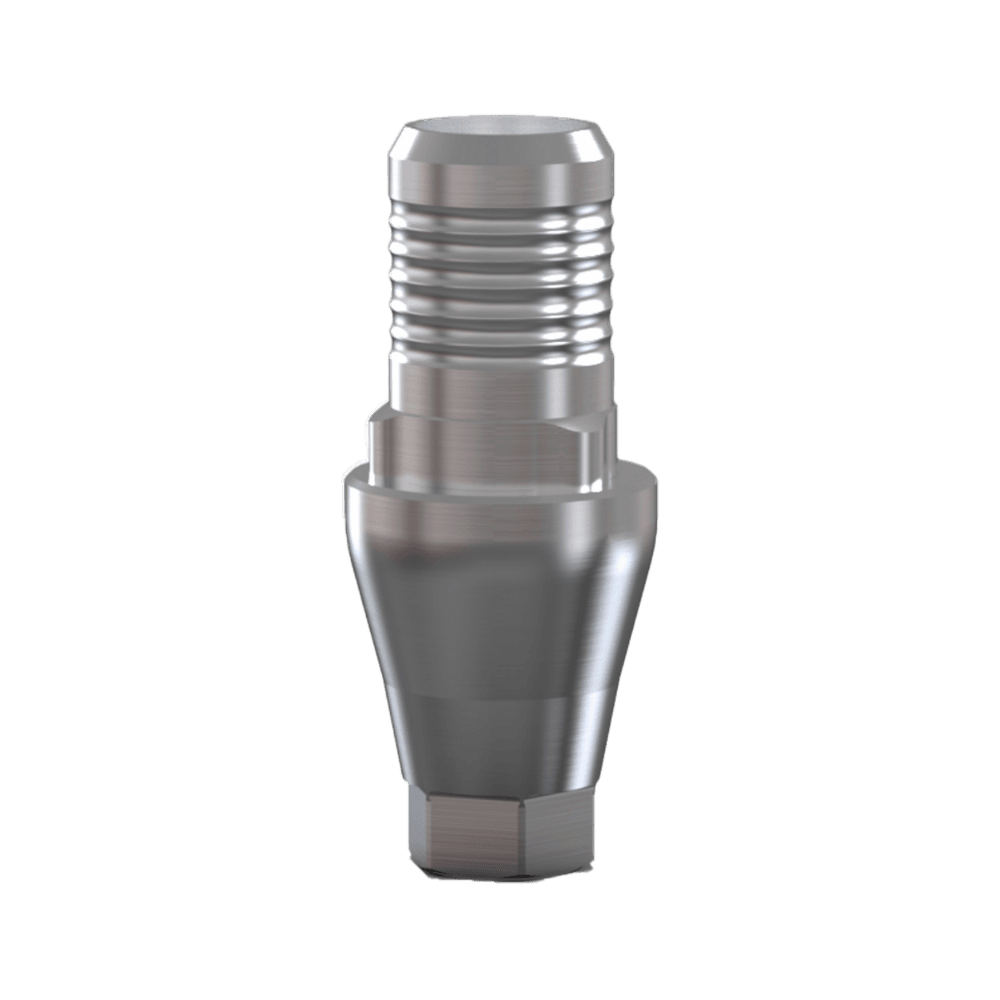Cement-retained crowns offer several benefits, including:
- Passive Fit: They provide a passive fit of the implant crown, reducing the risk of complications.
- Stress Distribution: These crowns avoid the transfer of stress to the implants, enhancing the longevity of the restoration.
- Aesthetic Results: They deliver excellent esthetic outcomes with an ideal occlusal design.
- Reduced Porcelain Failure: An unaltered framework or abutment design minimizes porcelain failure, allowing for conventional crown-and-bridge procedures.
- Sealed Micro-Gap: Cemented restorations seal the micro-gap between the implant abutment and crown, preventing bacterial debris from migrating into the abutment-crown space.
MITIMPLANT provides a range of abutments featuring a chamfer line that ensures precise alignment and seating of the crown while maintaining aesthetic considerations regarding the buccal-lingual position. Additionally, options for angulation correction are available to accommodate anatomical deviations in the anterior region or to address mechanical issues resulting from implants placed at an angle.
Key Advantages:
- Passive fit
- No stress transfer to the implant
- Excellent aesthetic results
- Groove line for precise alignment
- Angulation correction options
- Closure of the implant-crown micro-gap
Raw Material: Ti-6Al-4V ELI – Grade 5
- Hypoallergenic Properties: Titanium is often preferred for biocompatible implants and prostheses due to its low likelihood of causing allergic reactions in the body.
- High Durability: Its high strength and lightweight nature make titanium an ideal material for orthopedic and dental implants, as well as other medical devices.
- Corrosion Resistance: Titanium develops a resistant surface against oxidation, allowing it to remain inside the body for extended periods without degradation.
- Bone Attachment: Titanium integrates well with bone through a process called osteointegration, which enhances implant stability.
- Areas of Use: Biomedical devices made from titanium are utilized across various fields, including orthopedics, dentistry, and cardiovascular surgery.
- Surface Modification: Surface modifications can be applied to enhance the biocompatibility of titanium, improving the interaction between the implant and its biological environment. Due to these properties, titanium has become a highly sought-after material in biomedical applications.






